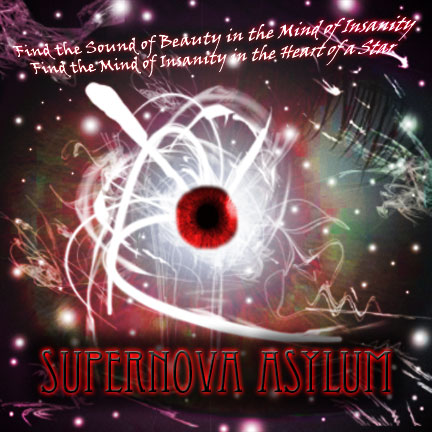Artist: Pink Floyd
Genre: Progressive Rock / Psychadelic Rock
Length: 42:59
Release Date: March 17, 1973
Label: Harvest (1973), Capitol (20th Anniversary), EMI (30th Anniversary)
Producer: Pink Floyd

It’s a sad fact of life – at least in the world of music, anyway – that the greatest and most important creations and developments are often sadly overlooked. I can expect anyone to know who Britney Spears is, but I still get raised eyebrows when I ask someone about Iron Maiden, and I guarantee most people have no idea what a “Grandmaster Flash” is. In such a world, it’s become increasingly difficult for me to take anything that’s remotely popular or mainstream seriously, which has in part lead to my more “alternative” taste.
Pink Floyd’s The Dark Side of the Moon is, in all respects, a glorious exception to this rule. Once my initial skepticism was pushed aside, I was overjoyed to find it to be one of the elite few truly deserving of its success and praise. And that goes beyond its purely financial achievements; at the time of its conception, DSotM was (and I am not exaggerating in the slightest here) an album destined by its inherent brilliance, creativity, and originality to define its era and deeply influence those to come from here to eternity. Whether that’s a statement that everyone wearing the Pink Floyd T-shirts they bought at The Gap can agree with is beyond me, but against impossible odds the fans and the critics – myself included – seem to agree, and so should you.
What’s truly magnificent about Pink Floyd is that the fame they acquired was due solely to the music they created, as it should be. DSotM is probably the best of their works to represent their ability because it is simultaneously their most experimental, so much so that it went on to define a genre that revolves around experimentation: progressive rock. Unlike their later rock opera classic The Wall, the album wallows in a sort of ethereal state, passing fluidly from one phase to the next, hard to grasp yet impossible not to be sucked into, like a musical vacuum. For this reason it’s hard to definitively break down DSotM into parts and infinitely easier to look at it as a whole, where the division of the album into songs only exists to divvy up the conceptual lyrics.
And conceptual the album is, dealing with some of the broadest and most complex issues: life, death, and that which takes place in between. Speak to Me / Breathe is the embodiment of life, represented by the throbbing heartbeat that ushers in the album, and the brief Eclipse ends it with a bold statement about free will. The remaining songs cover all kinds of territory ranging from religion (The Great Gig in the Sky) to greed (Money) to ethics and moral conflict (Us and Them), and are all delivered beautifully through David Gilmore’s spectacular vocals.
The guitarists and drummers do their task marvelously throughout, never overly technical and always in sync with the rest of the sound, but the real star here is the keyboard, courtesy of (recently deceased) Richard Wright. They are, indisputably, the key that unlocks the album’s almost ghost-like and oftentimes eerie sound, and this is clearly the album to which Wright contributed the most. Apart from that, the album’s atmosphere is accentuated by masterful mixing in of various sound effects and other oddities. The exact reasoning escapes me, but when a metronome syncs perfectly with the starting riff in Time, or when a melody of ringing cash registers and jingling coins kick in Money, it seems to make the song more meaningful.
Of course, the album does have its flaws. If you haven’t inferred this by now, know that it takes a patient and open mind to fully enjoy what DSotM has to offer. For something that has garnered so much attention, it’s surprisingly slow and lacks the focus and immediacy of most other music; many of its greatest second-long moments have buildups that can take minutes, as is the nature of progressivism. On the Run symbolizes this well; its long and repetitive keyboard noodling, accented only by odd sounds that pass in and out, may be as exciting to some as it is coma-inducing to others. Ironically, another potential fault can be found in its ending, which is sudden and lacks the explosive punch you would expect such an epic album to end at. In most other regards, though, DSotM is excellently paced and mastered.
Of course, maybe I’m being overly analytical (not like that’s a surprise to anyone). Bluntly put, The Dark Side of the Moon perfectly captures the time and place of 1973, perfectly summarizes a handful of life’s most vital aspects, and is a blast to listen to, all in one handy package. Beyond being the most important proof that music that impresses the public and leaves a massive mainstream mark is almost always made without the intention to do so (see also: Nirvana), its an album that actually received what it deserved. It’s a pity more albums don’t.
And R.I.P. Richard. We think you and your band may have written your own best eulogy for you: "And I am not frightened of dying, any time will do, I don't mind. Why should I be frightened of dying? There's no reason for it, you've gotta go sometime."
.jpg)
EYE.jpg)
1 comment:
Bravo and encore to your Steve, I never knew you had the rock in you. I definitely agree with you on this album, because Pink Floyd is an acquired taste but unlike many others it is easily acquired.
Post a Comment